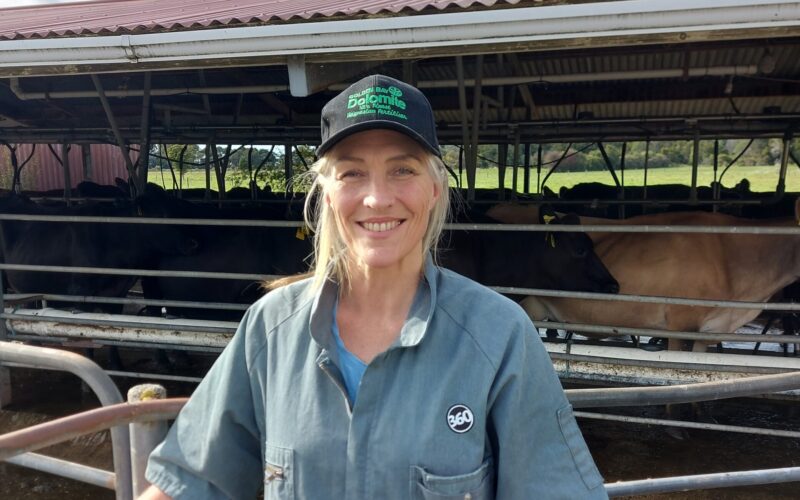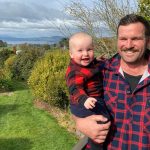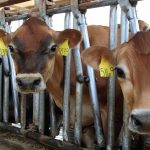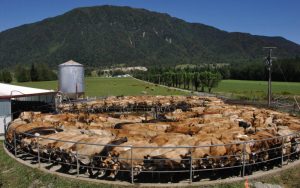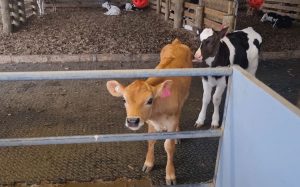
PhD candidate is looking for the honest thoughts of those on the lower rungs of the farm hierarchy, and how that might relate to safety.
Golden Bay dairy farmer and researcher Deborah Rhodes is seeking dairy farm assistants who are willing to help further her research into health and safety in the dairy industry.
The assistants will help Rhodes towards her PhD by anonymously reporting to her their interactions with their employers from a health and safety perspective.
Her PhD looks at what is going on in the minds of people in employment relations and its effect on health and safety, in particular safety behaviour, she said.
“They’re two huge disciplines in their own right.
“My PhD is looking very specifically at the dairy farm assistant. We know that the assistant is into their first, second or third year on the farm but they are considered a vulnerable worker because they are young, they’re inexperienced and are spending most of their time milking cows.”
Most health and safety issues occur within the shed where there are multiple hazards, she said.
“It’s a hazardous environment and you have a young, inexperienced person working most of their time in that environment.”
Last year Rhodes completed a Master’s degree that looked at perceptions of safety in the milking shed using surveys and interviews of farm owners and managers.
Her conclusion – which is currently under peer review – was that there are low levels of safety perceptions among dairy workers and there is a gap between low levels of safety perceptions and management goals for on-farm safety.
As a group, they are also not formally organised, not members of any union, isolated and remote. If they leave the industry it is not known where they go, why they leave and whether they will return, Rhodes said.
“We really know bugger all about them in terms of the literature.
“The research is trying to recruit that work group to understand what’s going on in their minds after they have had a verbal exchange with somebody on farm.”
That exchange could range from a verbal instruction-interaction from the 2IC, manager or owner to a text message asking the assistant to complete a task.
When people receive an instruction or an interaction, they have a thought about that, known in science as a reflective thought.
Rhodes wants to know what that thought is and for dairy assistants to send it to her via a short, 30-second audio recording on WhatsApp
Rhodes is seeking 30 participants to send two to three of these soundbite messages for eight weeks across this farming season every day.
Rhodes acknowledges that the trust transfer between herself and the assistant is very high because farm assistants are at the bottom of the farm hierarchy and are vulnerable.
As a result, the recording will be kept anonymous.
It will be used as a data point for her doctorate. Rhodes will take that data and using an artificially intelligent bot, will analyse the interaction to see if it contains information relating to safety.
“It’s a collection of soundbites based on someone’s collective emotional thinking that impacts on an individual in some way or another.
“A manager might say to a dairy farm assistant, ‘Look mate, can you get down the lane and pick up those standards that I left down there this morning? Thank you so much, that would be great.’”
The last part of that message could see the assistant react positively and record it as such in the audio message, Rhodes said.
The research is about gathering reflective thoughts and relating those thoughts to a safety perception.
The AI sends a question back via the app to the person about the thought, linking their thinking to safety perceptions regardless of the instruction’s context.
Rhodes will analyse the data once it has been collected to understand what effect work relationships have on safety behaviour, if any.
The research will also give a better understanding of staff’s perception of safety regardless of whether the farm follows best practice safety protocols or not, Rhodes said.
“Unless we know what the work group perceives to be safe or not, it’s not going to prevent unnecessary accidents or harm.”
Farm assistants interested in participating in the research can contact Deborah Rhodes at deborah.rhodes@vuw.ac.nz
You can now read the most important #news on #eDairyNews #Whatsapp channels!!!
🇺🇸 eDairy News INGLÊS: https://whatsapp.com/channel/0029VaKsjzGDTkJyIN6hcP1K
